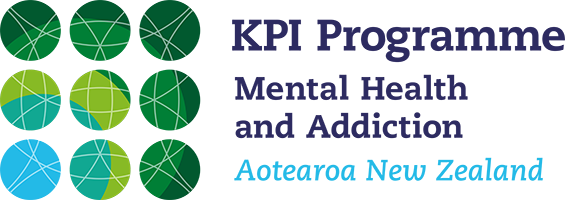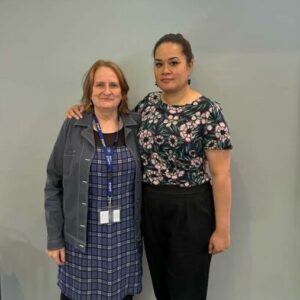On Tuesday 3 December 2024, Kāhui o te Ihi, Te Toka Tumai Auckland Health NZ hosted an event to showcase how services from across Tāmaki Makaurau are working alongside whānau for great outcomes.
Representatives from Te Toka Tumai Auckland, Counties Manukau and Waitematā mental health and addiction services spoke about the impact of co-facilitated whānau education groups.
“The hui shone a light on some amazing whānau volunteer facilitators and the equally amazing kaimahi who work alongside them in Te Whatu Ora district services here in Tāmaki Makaurau,” said Leigh Murray, Family Advisor|Kaitohutohu Whānau at Kāhui o te Ihi, Te Toka Tumai Auckland.
“Whānau engagement and inclusion in clinical spaces is hugely beneficial to services and the tāngata whai ora and whānau who use them”, said Leigh.
Speakers shared stories of success from the Family Connections and Awe Mātau programmes.
Family Connections
Family Connections is a 12-week manualised course developed in the USA by practicing clinicians and researchers Dr Alan Fruzzetti and Dr Perry Hoffman in consultation with whānau. The programme is for whānau in a relationship with someone who experiences very strong, hard to control emotions and/or may have been diagnosed with borderline personality disorder.
Dr Lucy Cowie, who works in Child and Adolescent Mental Health Services (CAMHS) Kāhui o te Ihi, Te Toka Tumai Auckland and whānau facilitator Nicola demonstrated the positive impact the Family Connections programme has had. Between week one and week 12 of the programme, whānau participants reported a decrease of 63% in their levels of depression, 45% in their levels of anxiety, and 40% in their levels of stress.
This was backed up by Nastassia Randell from Adult Mental Health Services, Kāhui o te Ihi, Te Toka Tumai Auckland and whānau facilitator Sandra who said involving whānau in the group process saw significant decreases in depression, anxiety, stress, burden, and grief levels among whānau participants.
Natalie Agarkov and whānau facilitator Stephen, who deliver the Family Connections Programme to Child and Adolescent Mental Health Services (CAMHS) at Waitematā, spoke about the benefit of having clinical expertise alongside the lived experience of whānau. Both are invaluable. Whānau participants are validated by hearing the stories of others who have similar experiences, it gives hope for another way.
The co-facilitation model of clinician and whānau facilitator that Family Connections uses also supports the HQSC’s code of expectations 1.4 Partnership and Shared Leadership which talks to “resourcing consumers, whānau and communities to contribute and engage meaningfully and having policies to reflect this.”
Awe Mātau
Whānau engagement is also integral to the Awe Mātau Programme, a six-week research-based group programme for whānau whose loved one experiences psychosis. To date, Awe Mātau has been implemented at both Kāhui o te Ihi, Te Toka Tumai Auckland and in the Counties Manukau Early Psychosis Intervention team. Both teams spoke of the importance of engaging with whānau in the programme to support their understanding of recovery and wellbeing for themselves and their loved ones.
The event was hugely informative and engaging, “It’s great to see services across Tāmaki Makaurau using data and benchmarking to shine a light on what can be done better.” said Leigh Murray.


 Login / Register
Login / Register Search
Search Menu
Menu

